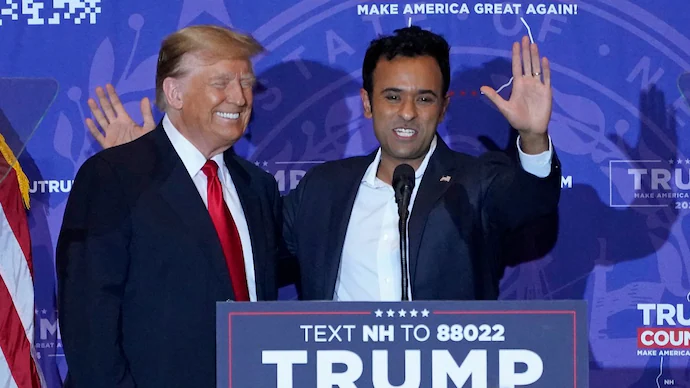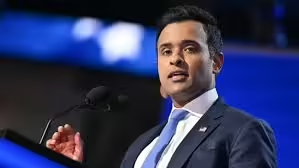
By Jessica Murdock
Vivek Ramaswamy Calls for Overhaul of H-1B Visa System
US Republican leader Vivek Ramaswamy has become a strong advocate for reforms to the H-1B visa program, calling for an overhaul that moves away from the current lottery-based system. Ramaswamy’s proposal to revamp the visa allocation process focuses on merit rather than chance, advocating for a system that prioritizes skilled workers rather than the randomness of the lottery.
A Clash with MAGA Leaders
This push for change places Ramaswamy at odds with some members of the Republican party, particularly those aligned with the MAGA movement. His stance stands in contrast to the views of many who believe that high-skilled immigration could potentially take jobs away from American workers, highlighting the tension within the party regarding immigration policy.

The Merit-Based Visa Proposal
Ramaswamy took to social media to express his discontent with the current system. He stated, “The H-1B system is badly broken and needs to be gutted. It shouldn’t use a lottery. It should be based on pure MERIT. It shouldn’t tether workers to just one corporation.” His comments reflect a broader vision of immigration laws that would prioritize talent and skills, particularly in technology and engineering fields.
Impact on Indian Workers in the US
The current H-1B visa system has a cap on the number of applicants allowed from each country, leading to long delays and frustration, particularly for applicants from India, which sends a large number of highly skilled professionals to the US. If Ramaswamy’s proposal gains traction, it could lead to faster processing times and smoother transitions to permanent residency for Indian workers, benefiting not only professionals but also the tech industry that heavily relies on foreign talent.
Support for Highly Skilled Workers
Sriram Krishnan, recently appointed as a senior policy advisor in the Trump administration, shares similar views on the issue. Krishnan, an advocate for immigration laws based on merit, has been pushing for changes that would expedite the green card process and prioritize skilled workers. His views align with Ramaswamy’s vision, signaling potential changes in US immigration policy under the incoming administration.
Potential Benefits for Indian and Global Workers
Should these reforms be implemented, countries with large numbers of skilled workers, like India, would likely see quicker access to US work opportunities and permanent residency options. These changes could alleviate the employment uncertainty many foreign workers currently face under the existing visa system, ultimately benefiting the global talent pool.
Experts Warn of Challenges and Risks
However, experts caution that while the reforms could benefit skilled workers, they must be carefully balanced to avoid abuses. There is concern that an overly lenient system could lead to an influx of talent that competes with American workers, potentially creating new challenges in the job market. Ensuring fairness and protecting local job opportunities will be critical in any changes to the H-1B visa program.


